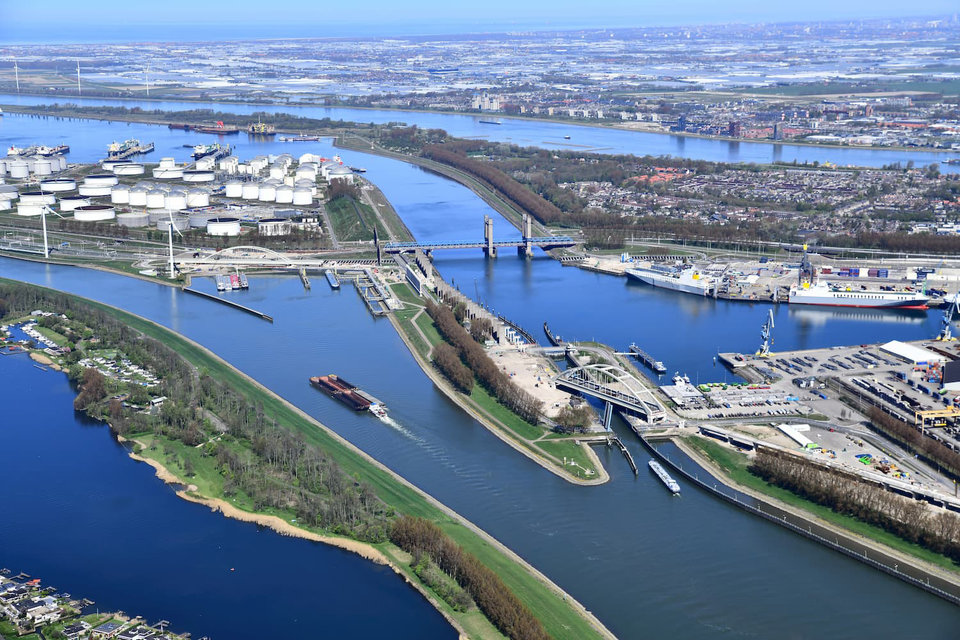Boosting innovation with generative AI
Generative AI (GAI) has been making headlines ever since ChatGPT was launched at the end of 2022. Triggered by text prompts and based on patterns learned from large amounts of existing data, ChatGPT creates new text that can be used for tasks such as drawing up summaries, answering questions and rewriting text. GAI can also create images, videos, audio or programming code. We now have a large range of GAI consumer applications, which, apart from ChatGPT, include Copilot, Gemini, Claude, DALL-E, and Midjourney.
Citizens, businesses, scientists, governments and civil society organisations are all exploring whether and how GAI can help them. What consequences will GAI have for research and innovation? What will it require from government and businesses? How can TU Delft contribute?
By Bennie Mols • Illustration: Hanneke Rozemuller • November 5, 2024
 GAI changes scientific research
GAI changes scientific research
When it comes to GAI’s applications in scientific research, the low-hanging fruit consists mainly of writing text, searching scientific literature and creating summaries. The higher-hanging fruit includes the various opportunities that GAI offers for analysing data faster and better, accelerating the discovery of new materials and drugs, and contributing to the design of new experiments. The highest-hanging fruit is GAI that can generate new scientific hypotheses and ideas.
“Typically, generative AI can help solve computational problems that have a large search spectrum of possible viable solutions”, says Alessandro Bozzon, professor of Human-Centered AI and programme manager of TU Delft’s 24 AI Labs. “Think about how a protein can fold or the combination of chemical compounds that can be used to develop new drugs. Generative AI approaches allow scientists to explore a huge search spectrum much more quickly.”
Yet Bozzon also warns that finding a promising molecule for a new material or drug faster is not automatically a bullseye: “To find out whether such a molecule actually does what it is supposed to do often requires a lot of work. With GAI, we let the computer do the boring computational work but the traditional testing in practice still has to be done by scientists.”
 GAI improves organisation, dissemination and utilisation of knowledge
GAI improves organisation, dissemination and utilisation of knowledge
Many companies struggle with the question of how experienced employees can transfer their knowledge and skills to new employees as efficiently as possible. Generative AI can provide a scalable solution, as shown in the EU project COALA (COgnitive Assisted agile manufacturing for a LAbor force supported by trustworthy Artificial Intelligence), in which TU Delft participated. The project developed AI-driven tools specifically designed to assist workers in manufacturing environments.
Bozzon: “Such tools enable workers in production plants to request information about how to operate a machine or deal with a dangerous situation. They can also share their own knowledge and experience with the tool so that other workers can benefit from it in the future.”
In another example of public-private funded research on generative AI, TU Delft has been collaborating with Maastricht University and the companies DSM–Firmenich and Kickstart AI in the ICAI Lab GENIUS since early 2024. The lab aims to develop human-centred GAI approaches for knowledge management and knowledge discovery within large organisations.
GAI tools for knowledge management can benefit companies and governmental organisations. Bozzon: “Such tools can help people to be civically engaged and ease access to information and services. In particular, I’m thinking about improving accessibility for those who currently have difficulties, such as people with disabilities, elderly people or people with a language disadvantage.”
Generative AI has created a mega-boost in attention to AI among our partners
 GAI boosts innovation
GAI boosts innovation
“Generative AI has created a mega-boost in attention to AI among our partners”, says Joost Poort, managing director of TU Delft’s Mondai House of AI. He is responsible for translating the AI knowledge developed by some 1,500 AI researchers at TU Delft into real-world applications. To this end, Mondai House of AI collaborates with the Erasmus Medical Centre and Erasmus University Rotterdam in the Convergence programme ‘AI, Data & Digitalisation’ and leads the AI Hub Zuid-Holland in collaboration with AI Ned and the Dutch AI Coalition.
As part of the ‘MKB Data Studio’ programme, Mondai House of AI collaborates with SMEs in the region on the use of GAI tools in their digitisation processes. Poort: “In the form of student projects and workshops, we help SMEs apply existing GAI tools in their digitisation. I think it’s important to pair the scientific development of new knowledge, like we traditionally do at the university, with the implementation and adoption of pre-existing tools by companies.”
Mondai House of AI also helps strategic key sectors in the region determine what added value AI tools can bring. Poort: “We do that for the port and maritime sector, energy and sustainability, healthcare, mobility and smart industry, among others.”
 GAI & strategic autonomy
GAI & strategic autonomy
Generative AI requires a lot of training data, a lot of computing power for the training and execution of models, and consequently a lot of money. Currently, it’s mainly Big Tech companies from the US that have the money, data and computing power to develop GAI models. Both Bozzon and Poort stress the importance of not becoming overly dependent on US digital infrastructure at both national and European levels.
The best form to achieve this strategic autonomy is still under discussion. Should TU Delft be able to train its own GAI models on its own supercomputer and link to other such local facilities and thereby contribute to a federated infrastructure? Should a High-Performance Computing facility be created at the national level in the Netherlands? Should a sort of CERN for AI be founded at the European level?
“Whatever form it takes”, says Joost Poort, “it is of paramount importance that we invest in a strategically autonomous solution for the Netherlands or on a European level. European countries individually are by definition small players on a global scale, so the most important thing we can do to have a meaningful impact is to organise ourselves collectively at regional, national and European levels. That is what we aim to contribute to at TU Delft and Mondai House of AI.”
Interested in collaboration?
Interested in business collaboration or seeking knowledge and insights on your policy themes?
Contact us







